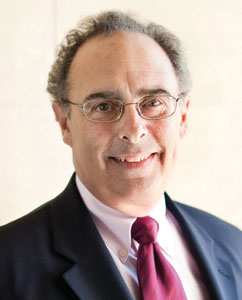 All of these arguments going on around me, arguments about whether we have the right to have guns, or whether guns kill people or people kill people, or whether gun control will save lives. And the arguments are hollow, devoid of the pathos of murder and death, empty of the moment between life and death, so empty of the blackness of staring into the oblivion, hearing the words, “I am sorry, but your child is dead.”
All of these arguments going on around me, arguments about whether we have the right to have guns, or whether guns kill people or people kill people, or whether gun control will save lives. And the arguments are hollow, devoid of the pathos of murder and death, empty of the moment between life and death, so empty of the blackness of staring into the oblivion, hearing the words, “I am sorry, but your child is dead.”
Have you spoken those words? Have you sat and stared at a blank piece of paper, wishing that the eulogy you will speak the next day to bring non-existent comfort to parents who are burying their child would suddenly appear and save you the shallowness of knowing that despite the necessity to speak there is nothing really to say? If you have, then you understand.
I am not alone in knowing this reality. But I hear no one discussing it. I nearly wrote just now, “senselessly lost a child,” but I took out “senselessly.” No child’s death makes sense. No death really makes sense, at the deepest emotional level. Death is absurd, so we concoct hopeful stories as to what it means. But in the final analysis, we all know that the reason we recite those stories — “Rabbi, what do we believe about afterlife?”— is because death attacks the very notion that life possesses ultimate meaning. You may as well say to a parent, “Come here a moment, I want to grasp your heart and tear it out of your chest; I want to smother your breathing with my fist; I want to gouge my fingers into your eyes so that even if you still can see light you will not really be able to see at all, everything will become a hellish mystery.”
Horror. Horror films attempt to engender an emotion that will dissipate. The horror flows through your pores and back into the world. There’s a relief, a catharsis from the experience. It’s a false horror, a manufactured emotion. It’s the new virtual world in which so many try to live. Murder; snatching a screaming child from her umbilical mother’s arms, placing her in a box, lowering the box into the ground, saying a final goodbye. That, that is horror. Horror churns in the bowels like a whirlpool in a sewer, tearing out your guts but unable to be discharged. If you have great defenses, you maybe can slow the churn, make yourself focus on something else for seconds, even minutes. But it explodes back, and shreds seams in your life fabric you didn’t even realize could be torn apart.
A woman hears a noise, descends the basement steps, finds her husband’s body on the floor and his brains splattered on the stone walls, blood everywhere. A young girl grows up without a father, gunned down on a whim after a robbery. I cannot adequately describe such scenes. They overwhelm my mind. I imagine that in war, at least you know you could die. But a 6-year-old leaves home for school, and her mangled, lifeless body is placed in your arms that afternoon? This is not an event. This is the world’s destruction; this is beyond hell, at least hell has some order, some defining characteristic, you are there for a reason. But a murdered child’s body defies reason, scorns reason. It is a freefall into the chaotic abyss.
And these people, who have experienced none of this, debate whether they should be allowed to own a weapon manufactured for three reasons: to kill people, to give a marksman a thrill, and to make a profit for gun companies.
There is no pathos in these debates, and without pathos they are absurd. I cannot bear them. Murder of a child makes insanity a realistic description of the world because if your child is murdered it’s the best description of what’s real. And if you cannot understand that, you ought not be in this debate, because this is the central fact with which it begins.
Rabbi Mark H. Levin is the senior rabbi of Congregation Beth Torah. This article first appeared on the Reform Judaism website, www.reformjudaism.org.


